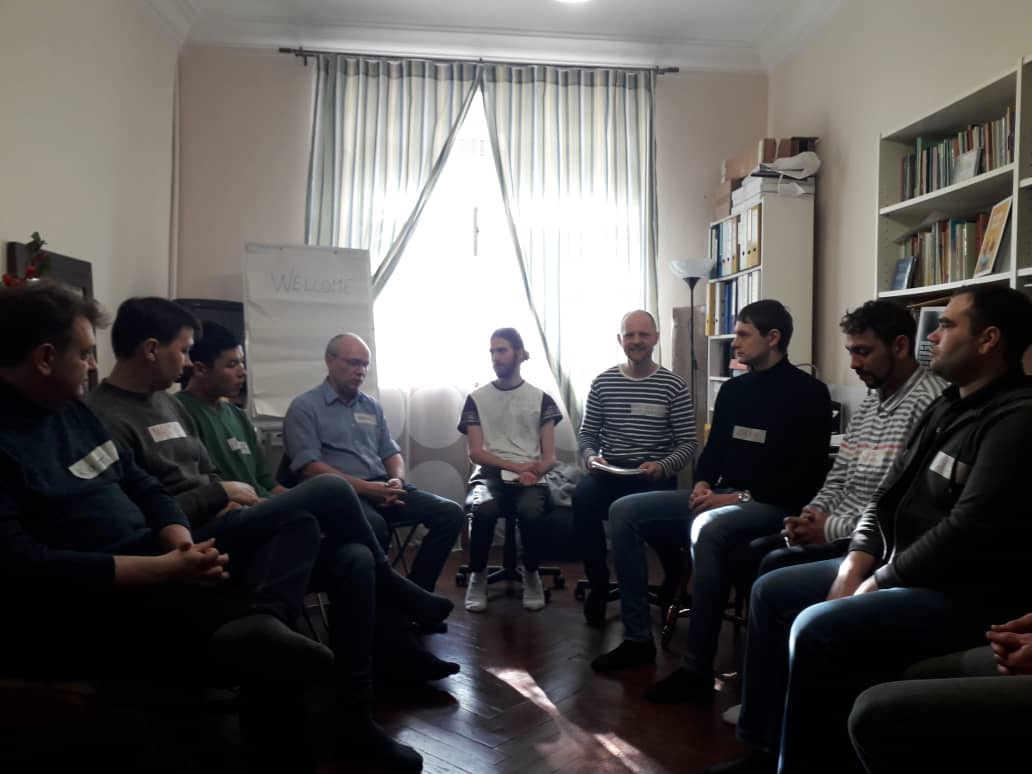After the #MeToo campaign bursted in the spotlight, many men wanted to get involved in this work. However, many did not know where to start. One way was to post stories of men from all over the world about their own experiences of violence using various hashtags. This shows that men, as a group, began to wonder: “how could I personally contribute to the existence of such violations that the #MeToo campaign seeks to reveal and address?”
MÄN, a Swedish organization, in collaboration with other similar minded organizations and institutions, along with CAG, endeavored in tackling this challenge by developing methods that would create a space for men for discussions and reflections. The pilot projects testing the methods were successfully conducted in Sweden.
To try the methods beyond the Swedish context, in the beginning of March 2020, a three-day long event was conducted in Moscow; one day of seminar and two days of interactive training. The thematic focus of the activity was the intersection of men, masculinity and ecology/climate. The event was co-organized by one of our Swedish partners – Men for gender equality, together with various Russian organizations.
The seminar part gathered mostly scholars and experts and laid out the knowledge foundation related to the theme – gender and ecology. This provided the participant with an overview of the research in this domain.
The training component was more practical and interactive, where a smaller group of men from Russia and Central Asia took part in a 2-day training. It was based on a newly developed methodology about how to shift masculinity norms away from its more toxic and ecologically destructive manifestations, toward care and mutuality. For that purpose, CAG has supported four activists from our partner organizations such as Children of St Petersburg in Russia and Novi Ritm in Kyrgyzstan, to attend the conference in Moscow.
“Thanks to this seminar, we learned about the methodology that is successfully used by our colleagues in Sweden; also we had a chance to instantly discuss and practice the methods with colleagues from Russia and Kyrgyzstan. Of particular value was that in addition to the exercises that were demonstrated and practiced instantly at the seminar, the organizers provided the participants voluminous theoretical material. This will allow further dissemination of the proposed methods among our colleagues in the Russian-speaking activist environment.
An interesting observation during the seminar was that the activists from Astrakhan were no less open to new practices than the colleagues in the “capital”. Personally, I think that the organizers adapted the program for presentation in the Russian context. However, at the same time, I was pleasantly surprised by the rich experience of colleagues from the post-Soviet space in working with the feminist and environmental agenda.
Thanks to CAG, the geography of the training participants in Moscow was not limited only to the borders of the Russian Federation. It was most valuable for me to have the opportunity to personally get acquainted with activists from Bishkek and Osh, to learn firsthand about the successes and challenges of civil society in Kyrgyzstan and to discuss the possibilities of further cooperation on issues of equality, sustainable development and human rights”, – shared Artiom, an activist from our partner organization Children of St Petersburg.
“I personally did not have expectations from the conference; however, I am glad I had a chance to take part in it. I have learnt many things; I liked the methodology itself – sitting in a circle, I could share with my stories, thoughts… and the special thing about the circle is that you don’t get any feedback from others and you have a chance to self-reflect on your own actions through your own narratives. Also, I learned how the masculinity norms affect the environment, and it turned out that these are ordinary things that I face in everyday life, for example: it’s not a man’s job to care about flowers and other plants, they can smoke and so on, man should be brutal, shouldn’t care much about surroundings, basically, do whatever one can as a man… the list can go on and on, this is how we view masculinity in our society. To conduct such sessions in Kyrgyzstan might be a bit challenging, as our society is quite conservative, however, it’s worth challenging the norms and bring new perspectives; I do not doubt the effectiveness of this initiative, however, it can be adapted to the context of my community. I hope after participating in conversations in a circle, men will gain perspectives and become more sensitive to violence against women and destructive behavior towards the environment…”, – shared Mamatkazy, an activist from Osh, Novi Ritm.
Тhis is the first time for CAG to be part of such an event and movement; we hope that these methods will be implemented in future activities and collaborations, starting from small scale pilot projects that each participant will implement in their respective context/organization.
Written by: Talgat Subanaliev

